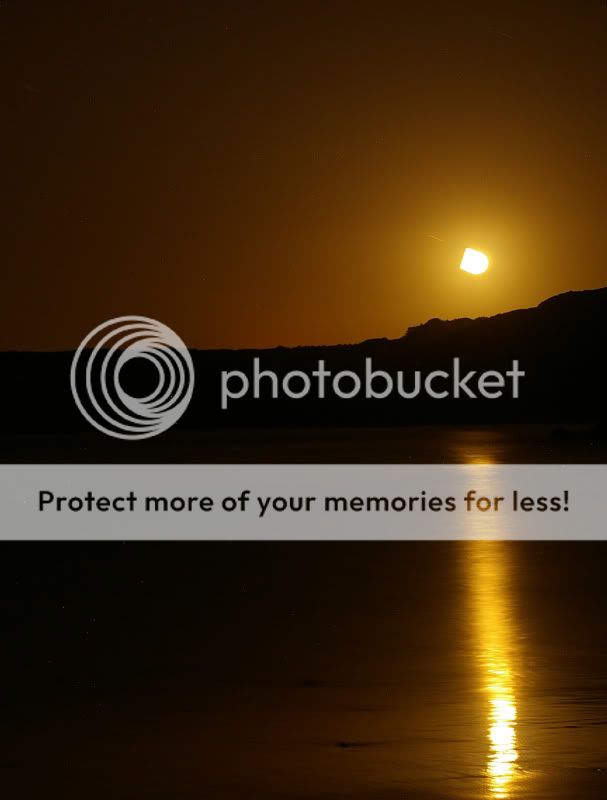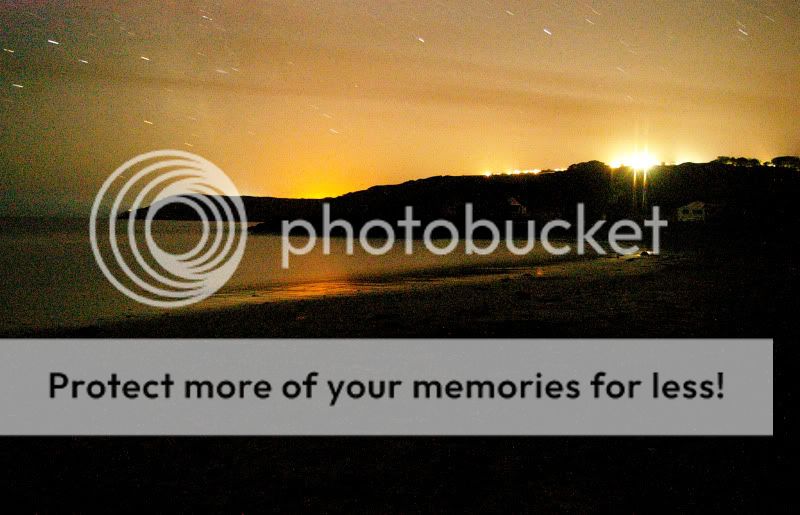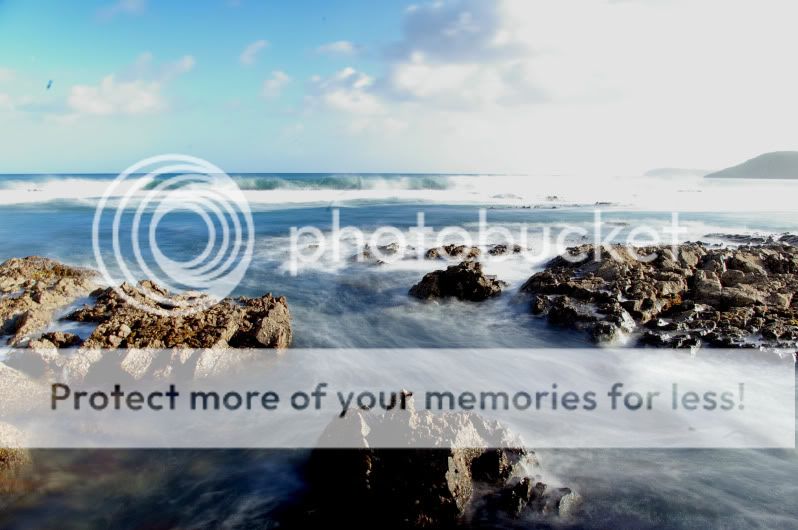- Messages
- 476
- Name
- Jerry
- Edit My Images
- Yes
Sorry - several pictures - lots of text.....Mostly disaster!:bang:
Night 1 - Set off along the narrow, very muddy, forest path from our campsite to the beach. 15 mins walk in daylight minimum. Double that time based on the fact it was pitch dark, and the only torch I had (Boys had carefully left the others at home!!!) was running out of batteries and giving off a dim light about the size of a 50p piece! Almost fell in the mud about 6 times.
Reached the beach, and fortunately was not overwhelmed by the sudden brightness from emerging from the woods, due to there being no moon in the sky, and I was still in virtual pitch black!
Set up tripod, set timer for 5 minutes for first shot - batteries failed!
Removed camera - fitted new batteries - also failed
tried once more and realised that the batteries in my torch were so dim that I would be unlikely to find my way back home.
Saw 10-15 small lights coming toward me - and thought it might be smugglers / pirates / drug dealers / devil worshippers - So I kept still and quiet and just watched them approach. Safe in the knowledge that as I was totally unlit, and wearing black, I would not be at all visible, until they were almost upon me, at which time I could judge who and what they were. turns out they were just a group of night-time ramblers and we siad hello and went our seperate ways.
I trudged back to the campsite empty handed - (no pictures that is. I still had my camera kit.)
Couple of days later I tried the 2 circular polariser method. It didn't really work. Too much glass mean that there were reflections bouncing all over the shop - colour cast was virtually impossible to overcome - even with a bit of a play with the white balance, but more to the point, even though it looked evenly dark - The resultant polarisation only covered a wide diagonal strip, rather than the whole image!
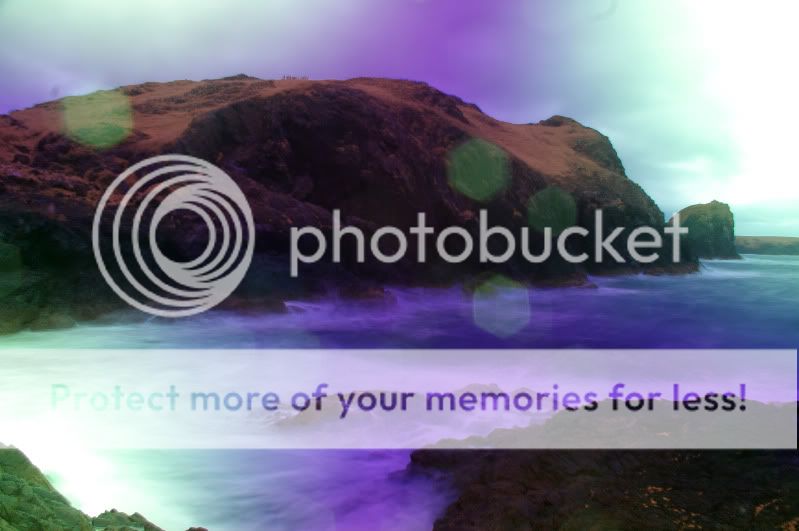
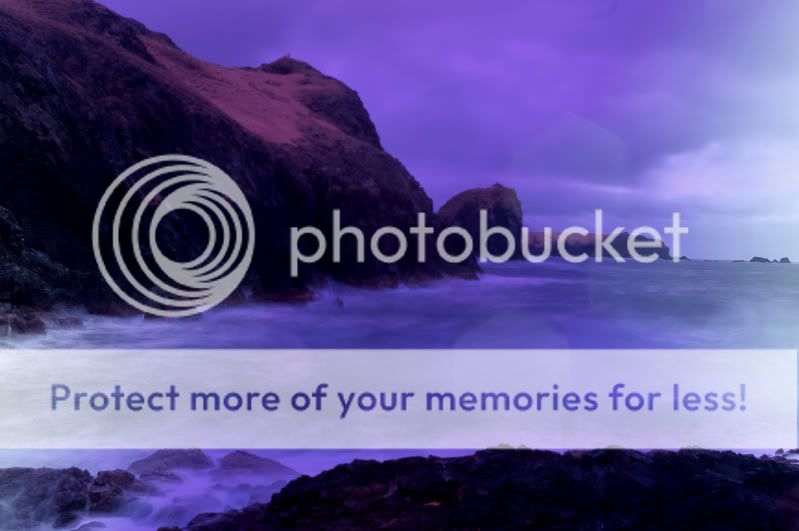
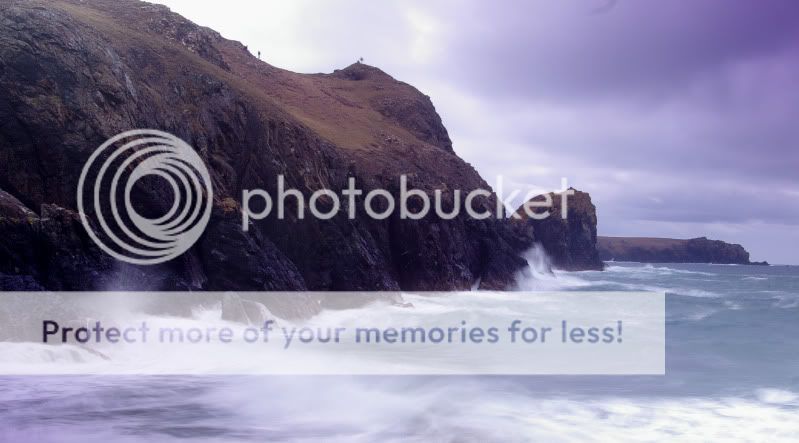
........To Be Continued!
Night 1 - Set off along the narrow, very muddy, forest path from our campsite to the beach. 15 mins walk in daylight minimum. Double that time based on the fact it was pitch dark, and the only torch I had (Boys had carefully left the others at home!!!) was running out of batteries and giving off a dim light about the size of a 50p piece! Almost fell in the mud about 6 times.
Reached the beach, and fortunately was not overwhelmed by the sudden brightness from emerging from the woods, due to there being no moon in the sky, and I was still in virtual pitch black!
Set up tripod, set timer for 5 minutes for first shot - batteries failed!
Removed camera - fitted new batteries - also failed
tried once more and realised that the batteries in my torch were so dim that I would be unlikely to find my way back home.
Saw 10-15 small lights coming toward me - and thought it might be smugglers / pirates / drug dealers / devil worshippers - So I kept still and quiet and just watched them approach. Safe in the knowledge that as I was totally unlit, and wearing black, I would not be at all visible, until they were almost upon me, at which time I could judge who and what they were. turns out they were just a group of night-time ramblers and we siad hello and went our seperate ways.
I trudged back to the campsite empty handed - (no pictures that is. I still had my camera kit.)
Couple of days later I tried the 2 circular polariser method. It didn't really work. Too much glass mean that there were reflections bouncing all over the shop - colour cast was virtually impossible to overcome - even with a bit of a play with the white balance, but more to the point, even though it looked evenly dark - The resultant polarisation only covered a wide diagonal strip, rather than the whole image!



........To Be Continued!


